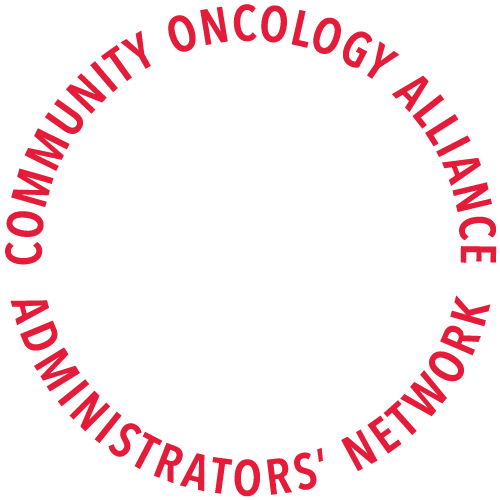
Aetna’s Oncology Medical Home Program
Shared savings model which measures pathway compliance, drug choices re-priced using a standardized fee schedule, along with IP/ER reduction vs. a same state control group. Practices enroll their patients thru pathway vendors such as VIA, CVP or other approved companies. Groups are also supplied with daily IP reports and monthly reporting packages to review costs, trends and other utilization. Monthly meetings with participating practices and data boot camps as requested.
Organization:
Aetna
Established:
Feb 1st, 2014
For contact information please send inquiries to info@COAcancer.org

BCBS Oncology
The program is expanding to include the AIM Cancer Care Quality Program. This will include:
- Peer-to-peer conversations about evidence-based treatment options.
- oncology-trained nurses available to provide clinical information and review clinical guidelines
- Oncology clinical decision support and treatment validation web-based platform, for pathway adherence and utilization management to identify optimal cancer treatment and maximize the value of care
Implementation of the Pharmacists Optimizing Oncology Care Excellence in Michigan (POEM) Initiative through the Michigan Oncology Quality Consortium (MOQC).
This initiative integrates an oncology pharmacists into oncology practices. The POEM coordinating center is working with physician organizations and their affiliated practices to assist with therapy and symptom management, reducing ED visits and hospitalizations, and care coordination. BCBSM is supporting the placement of the oncology pharmacists as well as offering value-based reimbursement for engagement and future performance.
Other areas of development through MOQC:
- Improving hospice enrollment
- Implementation and expansion of a Patient Reported Outcomes (PROs) initiative
- Development and reporting of oncology specific patient quality and outcomes measures
Organization:
BCBS Michigan
For contact information please send inquiries to info@COAcancer.org

Oncology Care Model (OCM)
138 participating teams
Features –
- Incentives to transform
- Emphasis on quality and total cost of care
- Multi-step reconciliations and settlements
- Receiving national attention
- Complex – attribution and methodology
- One or two-sided risk
- Teams can receive a performance based payment if they do well
Measures
- Claims data and registry input, patient survey

Humana Oncology Model of Care (OMOC)
The OMOC program is our commitment to enhancing the experience of our members and the quality of care that they receive from our oncology providers at one of the most difficult times in their life, as they are battling cancer. This quality focused, value-based program directed at medical oncology providers asks the participants to provide an enhanced care management experience to our members who are receiving chemotherapy treatment. To support delivering that enhanced care management experience, we provide a monthly Care Coordination Fee payment to be used by the practice for development of infrastructure / resources needed to support our members.
This is driven through adherence to the 5 Quality Metrics of the program which include:
- Patient and Family Caregiver Education,
- Advance Care Planning
- Pain Assessment and Management
- Depression Screening and Management
- Expanded Member Access. When we enhance the care management services and improve quality, we believe we will also see reductions in utilization and cost for our members, providers, and Humana.
Organization:
Humana Inc.
Date this was first introduced:
Our program started in Q4 of 2018
For contact information please send inquiries to info@COAcancer.org

Priority Health Oncology Care Model
There are a few customizations to Priority’s OCM program that are important to note:
1. Risk Adjustment: Priority Health does not perform risk adjustment for the utilization measures, while CMS does
2. Payment: Priority Health makes quality incentive and shared savings payments retrospectively on an annual basis, not semi-annually like CMS
3. Incentive Measures: Priority Health selected a small subset of CMS’ measures to incentivize
4. Shared Savings: Priority Health established a utilization based performance measure for the shared savings component of the model, as opposed to a total cost of care approach, and requires a minimum of 200 Priority Health member episodes for eligibility to participate in the shared savings
5. Claims: Priority Health does not make Commercial OCM payments via its automated claims system. These claims are manually processed to prevent member liability
Quality performance incentives:
Measure name: Preventive Care and Screening: Screening for Depression
Definition: Practices will complete this data for all patients for whom they are billing the MEOS payment – providing data of service and screening score.
Plans: HMO/POS, ASO/PPO, Medicare, Medicaid
Target: 90% years 2-5
Measure name: IOM 13 point Care Plan
Definition: Practices will complete this data for all patients for whom they are billing the MEOS payment – providing data of plan completion.
Plans: HMO/POS, ASO/PPO, Medicare, Medicaid
Target: 90% years 2-5
Utilization performance-based incentive
OCM measure number: OCM1
Measure name: All cause hospital admissions
Practice eligibility: Minimum 200 completed 6 month episodes (not unique member episodes)
Definition: Patients with all cause hospital admissions within the 6 month episode
Denominator: All patients with an episode
Numerator: All patients with at least one short term acute care hospital admission during the 6 month episode
Plans: HMO/POS, ASO/PPO, Medicare, Medicaid
Target: >4% reduction in hospital admissions
OCM measure number: OCM2
Measure name: All cause ED and observation stays
Practice eligibility: Minimum 200 completed 6 month episodes (not unique member episodes)
Definition: Patients with all cause ED visits and observation stays that did not result in a hospital admission within the 6 month episode
Denominator: All patients with an episode
Numerator: All patients with at least one ED visit or observation stay not resulting in a hospital admission during the 6 month episode
Plans: HMO/POS, ASO/PPO, Medicare, Medicaid
Target: >4% reduction in ED visits and observation stays
Organization:
Priority Health
Established:
October 1, 2016
For contact information please send inquiries to info@COAcancer.org
